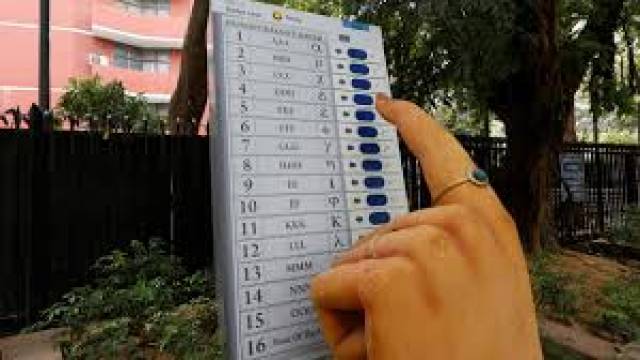 Daily Star Banner
Daily Star Banner

Shanzida Afreen Eity:
Millions of Indians are voting Saturday in the next-to-last round of a grueling national election with a combined opposition trying to rattle Prime Minister Narendra Modi’s campaign for a third-consecutive term for himself and his Hindu nationalist party.
Many people lined polling stations before the start of voting at 7 a.m. to avoid the blazing sun later in the day at the peak of Indian summer.
Saturday’s voting in 58 constituencies, including seven in New Delhi, will complete polling for 89.5% of 543 seats in the lower house of Parliament.
The voting for the remaining 57 seats on June 1 will wrap up a six-week election. The votes will be counted on June 4.
This election is considered one of the most consequential in India’s history and will test Modi’s political dominance. If Modi wins, he’ll be only the second Indian leader to retain power for a third term, after Jawaharlal Nehru, the country’s first prime minister.
A less-than-expected voter turnout in the previous five rounds of voting seems to have left both sides guessing about the outcome of the election.
Temperatures are likely to rise above 45 Celsius (113 Fahrenheit) in some places on Saturday. Election authorities said they are taking steps to ensure voters’ comfort, such as setting up fans and tents and providing drinking water.
Most polls predict a win for Modi's Hindu nationalist Bharatiya Janata Party, which is up against a broad opposition alliance led by the Indian National Congress and powerful regional parties.
Modi was involved in a highly acrimonious and mudslinging campaign with the opposition, led by Rahul Gandhi, the scion of the Nehru-Gandhi family that has produced three prime ministers.
“When the polls began it felt like a one-horse race, with Modi leading from the front. But now we are seeing some kind of shift," political analyst Rasheed Kidwai said. “The opposition is doing better than expected and it appears that Modi’s party is rattled. That’s the reason you see Modi ramping up anti-Muslim rhetoric to polarize voters.”
Kidwai said the opposition has challenged Modi by centering its campaign narrative on social justice and rising unemployment, making the contest closer than expected.
Modi ran his campaign like a presidential race, a referendum on his 10 years of rule. He claimed to help the poorest with charity, free health care, providing toilets in their homes, and helping women get free or cheap cooking gas cylinders.
But he changed tack after a poor turnout of voters in the first round of the election and began stirring Hindu nationalism by accusing the Congress party of pandering to minority Muslims for votes.
Hindus account for 80%, and Muslims nearly 14%, of India’s over 1.4 billion people.
Nearly 970 million voters — more than 10% of the world’s population — were eligible to elect 543 members to the lower house of Parliament for five years.
Voters’ relative apathy has surprised some political analysts. In the five rounds of polling the voter turnout ranged between 62.2% to 69.16% — averaging 65.9%. By comparison, India’s 2019 national election registered the highest-ever voter turnout — 67.11%. Modi’s BJP won 303 seats in parliament in 2019.
Modi’s inauguration of a massive Hindu temple for the most revered Lord Rama, his massive roadshows, and big public rallies raised the BJP’s hopes of a massive a surge of voters in its favor.
Modi came to power in 2014, dislodging the Congress party that governed the country for nearly 55 years after India won independence from British colonialists in 1947.
Before the election, the opposition INDIA alliance was seen bickering, but it has since held together, particularly after two chief ministers of two opposition-controlled states were sent to jail on corruption charges. Both deny the accusations.
One of them — New Delhi Chief Minister Arvind Kejriwal — has since been released on bail and returned to the campaign trail.
In March, Gandhi completed a 6,713-kilometer (4,171-mile) walk across the country, starting in the violence-hit northeastern state of Manipur, to raise issues of poverty, unemployment, and democracy with voters.
“The walk helped Gandhi boost his image as a serious politician among the voters, and that is helping the opposition,” Kidwai said.
